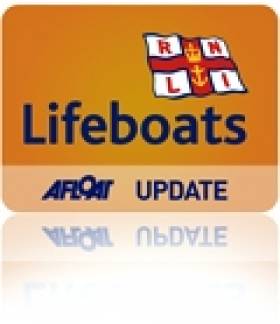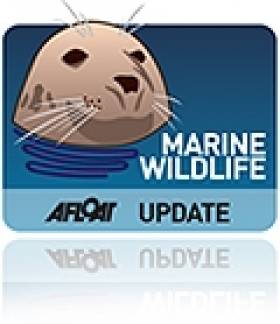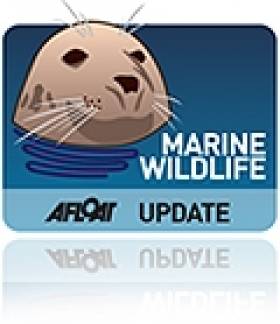Displaying items by tag: FethardonSea
#RNLI - Fethard-on-Sea RNLI were diverted from a planned exercise last weekend following a report of a young man in extreme difficulty after he launched a kayak near Baginbun Head to rescue his dog from a steep gully.
The young man and his girlfriend, both from Co Wexford, were walking with their dog near Baginbun Headland on the afternoon of Sunday 22 March when the dog fell into the gully while following a seagull.
The man, in concern for his dog, tried to rescue it by getting his kayak, launching it, and going into the gully. Sea conditions were calm at the time and the man was an accomplished boatman with a good knowledge of the seas around Baginbun.
However, as he entered the gully he realised that the sea was rougher than he anticipated. His kayak overturned and he realised that he was going to have difficulty getting out to open water.
Conditions inside the gully were worsening as the tide started to come in. The man alerted his girlfriend who remained on top of the gully to raise the alarm.
Fethard-on-Sea RNLI were on a planned training exercise in the area when the call came through. Lifeboat helm Hugh Burke immediately had the boat launched at Fethard Harbour and went to Baginbun.
The RNLI lifeboat crew established contact with the trapped man and assessed the situation. The lifeboat helm decided to manoeuvre the lifeboat into the gully stern first. The man was rescued by the lifeboat crew but sadly his dog died as a result of the fall.
A coastguard helicopter was on standby in the vicinity in case the man required hospitalisation but this was not necessary.
The RNLI would like to remind the public of the danger of trying to rescue dogs that get into difficulty in the sea or on cliffs and advised the public to contact the Irish Coast Guard.
Renewed Concerns For Seals After Carcasses Found In South-East
#MarineWildlife - The Irish Seal Sanctuary has raised concerns after eight seals were found dead in Wexford and Waterford in recent days, as RTÉ News reports.
A shocking total of six carcasses were discovered near Fethard-on-Sea alone, while one apiece were found near Dunmore East and in Tramore - the latter reportedly decapitated.
The news comes just a few months after Johnny Woodlock of the Dingle Wildlife and Seal Sanctuary warned of a "swing of activity" in seal fatalities around Ireland earlier this year.
The most horrific of these incidents was the grisly scene of two baby seal heads nailed to a sign outside the Dingle wildlife sanctuary, accompanied by graffiti daubed in red paint reading 'RIP Cull' - presumed to be a reference to local fishermen's urging for a reduction of seal numbers in the area.
More recently, reports from Castlerock in Co Derry suggested that a dead seal found on the beach suffered a gunshot wound to the head.
All seals in Ireland are protected under national and EU law.
The Irish Seal Sanctuary is currently urging the National Parks and Wildlife Service to launch an investigation into these latest incidents, and is appealing to the public for information on these or other seal deaths.
Dead Seals Washed Up at Fethard-on-Sea
#MARINE WILDLIFE - The Gorey Guardian reports that the bodies of two grey seals were found washed up last week on Booley Bay beach, near Fethard-on-Sea in Co Wexford.
The two seal pups were found in an emaciated and malnourished state by a beach walker on 27 November.
According to Irish Whale and Dolphin Group chair Kevin MacCormick, dead seal strandings are not unusual at this time of year, particularly after stormy weather, and grey seals have an especially high mortality rate.
Tramua wounds and blood found on the seals were put down to predation by seabirds.
































































